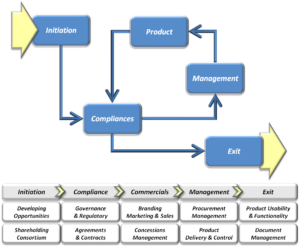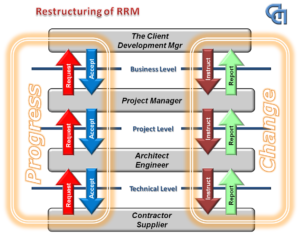
PM 21st Century
Project Management is close to be the profession of who has no-other.. Despite how the marvellous curriculums and knowledge zone had made it, as apparently, easy to comprehend.. Despite how the educational and mentoring efforts had produced (reliable or mutated) project managers.. Despite the common senses in implementation and skills in deliveries.. The practice of Project Management is often hallmarked by authoritarianism, intimidation, humiliation and (even) abuse of contractors, resources and (fellow) team members.. This is the everyday stories in workshops, construction sites, offices and laboratories.. This is a worldly phenomenon, not only at the third world’s..!
The emphasis on Leadership is obviously problematic in implementation, not only by the sophisticated vocabularies, but also by the fuse of the awful (masculine) tendency to rule and control.. When the assignment is carried out by females; their course of actions is more harmful in our (worldly) patriarchy culture.. It is common comment among contractors and project teams to carefully count the moves of their (female) Project Manager.. The excessive use of behavioural responses, the unbeatable tones of sexism and marvels of (female) mastering of politics; constituting lethal yet successful deliveries.. At the end, the satisfactions of both Client and Sponsor is all what is to count..
Once a Project Manager is named; her/his true streams will not be PMBOK or PR2, but the mainstreams of operations management.. The implementations of the 139 processes of PMI or the 48 process of PR2 are not mandatory for implementation anymore.. Project Managers often return to the classical (political) schools of peoples’ management. Such emphasis on emotional and behavioural management would deliver the tasks on time, as per scope and on budget; but will consume both corporate culture and sustainability on the path, if any
The last two decades were perfectly called the “PM Era”, not only because of the nearly two million professionals who are accredited as Project Managers, but also because of the increasing weight and influence of methodology and applications. Regretfully, the shares of this achievement are not equal among countries and continents; which add more economic and feasibility gaps among nations. In addition, the effect of contemporary “enterprising” which had evolved L&D from CSR catalyst into a profit generator; had made the underdeveloped countries typical casualties.

Notable Definitions
- Acceptance: The formal decision by the relevant action owner; who had carried standard investigations to confirm conformity of the subject deliverables.
- Approval: The formal decision by the Client that expresses successful delivery of the whole or part of a particular service or the specified deliverable, as accepted and recommended for approval by the relevant action owner. Upon the receipt of these decisions, the Service Provider is entitled to claim a payment as per the agreed terms of payments.
- Change: The status resulted from different value occurrence on the ruling baseline than what had been approved; due to sole or multiple reasons accepted by the Relevant Action Owner; and subject to the Client approval. Consequences of these new values summarize the Change tangibly and intangibly.
- Cycle: Project Life Cycle is interpretation of activities from pre-initiation till the close out. Lately; it was holistically agreed that each of the five core stages has its own phases to represent its cyclical initiation, planning, controlling and closing.
- Deliverables: These are the set of condition-precedential products delivered by the party in contract with the Client; either soft or hard; which are elaborated in the contractual schedules
- Instruction: A process through which the authorized party directs the Service/Product Provider to make an effort that will enhance the delivery of part or all of the services/products as per project plan and/or formal changes.
- Optimization: A process to align the main baseline parameters to the most convenience to Client’s interests. Not only is it comparable to benchmarking, but also implementations of best practices.
- Report: A document is regularly, irregularly or as requested produced to explain status, notify issues or justify actions; and issued by the Relevant Action Owner to obtain acceptance and approval from the authority on both contents and submission.
- Request: A process through which the Service/Product Provider requests acceptance and approval from the authorized party on an issue that relates to the delivery of part or all of the services/products as per project plan and contract
- Template: A form for documenting data and information to constitute report, communiqué or record of a particular action, which aims to standardize the exchanged format of information for better monitoring and control. Template is the sole ownership of the Client, to be used throughout the project.
